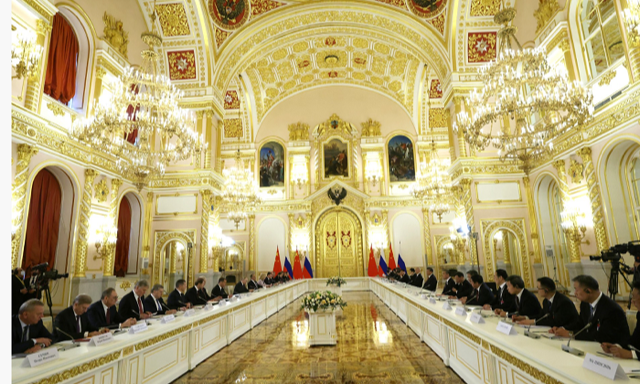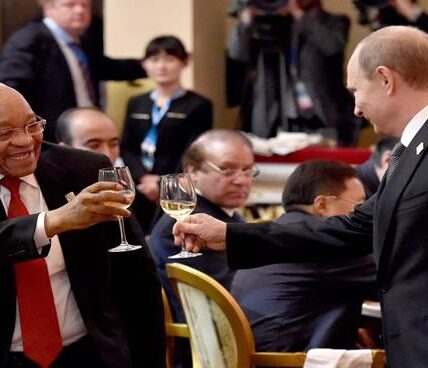Wagner Group, the infamous Russian private military company, has reignited its recruitment campaign on Facebook, preying on unsuspecting individuals worldwide, to lure them into joining the conflict in Ukraine.
The targeted nature of this recruitment drive is clear as the ads specifically target Africans, promising an opportunity to engage in direct dialogue with recruiters. Astonishingly, the ad boasts of hundreds of registrations from various regions, including Africa, Vietnam, and Nepal, insinuating a vast network of potential fighters being lured into the fray.
Amidst assurances of legitimacy and a disdain for scams, the ad claims no upfront fees, with the Russian defence purportedly covering all expenses until departure. However, beneath the veneer of generosity lies a sinister truth: the exploitation of vulnerable individuals for geopolitical gain.

NSN identified numerous accounts who published the exact same message. These same accounts then spam their post in French speaking groups with several thousands of members, promising recruits a link to the “MOTHERLAND” where they can apply and converse directly with recruiters.
In the comments section, anticipation is intense as many eagerly await additional information. Responses are pouring in from diverse corners, including Chad, Angola, Benin, the Democratic Republic of the Congo, Burkina Faso, Ivory Coast, and beyond. Some individuals have gone as far as leaving their telephone numbers, signalling their keen interest.
One user commented, “The Russians have to pay well,” while another speculated that the compensation could exceed $2,000. Yet, it appears that currently, the promise of lucrative rewards is merely a teasing prospect, as interested users are still left waiting for further details to emerge. While doubts linger about the legitimacy of such offers, the significant level of interest is undeniable.

Global Call: From Africa to Nepal
Driven by poverty and desperation, individuals from various nations are flocking to Russia in search of employment opportunities, some willingly and others unwittingly cast onto the frontlines. The Facebook ads seen by NSN claim that 700 Africans, 500 Vietnamese and 343 Nepalese citizens have already joined the Russian forces in Ukraine, though the reliability of these claims remains uncertain. Nevertheless, an increasing number of foreign citizens have been observed in Ukraine, some meeting tragic ends on the battlefield. As Moscow exhausts its domestic recruitment pool, it is turning to foreigners to sustain its military campaign.
From Nepal, accounts surface revealing the recruitment of thousands of men for combat duty, their dreams of economic advancement unravelling into nightmares upon arrival in Ukraine. “We endured hunger and brutality from the Russians,” expressed one survivor, echoing the sentiments of many who found themselves thrust into the role of “cannon fodder.” Despite an estimated 2,000 Nepali men reportedly enlisting for combat, their participation violates Nepali law, which strictly prohibits citizens from joining foreign militaries without official authorisation.
Further reports revealed how four Indian nationals were lured by foreign recruiters in Russia into joining the Wagner Group. Initially promised roles as security assistants, they found themselves forced into the midst of conflict. Such exploitation of vulnerable individuals from distant corners of the world to serve as pawns in geopolitical disputes highlights the moral bankruptcy of those orchestrating such operations.

Ukraine Warning to Protect Citizens
Petro Yatsenko, spokesperson of Ukraine’s Coordination Headquarters for the Treatment of Prisoners of War, highlighted Russia’s intensified efforts to enlist fighters from nations grappling with economic hardship. “We see that Russia boosted its efforts to send citizens from countries with difficult economic situations to the front line,” Yatsenko said. “If we take a country with a low level of income per population, there is a high probability that some citizens of that country may be recruited by Russia and used as storm troopers, or cannon fodder,” he added.
The National Resistance Centre of Ukraine confirmed these assertions, documenting instances of individuals from countries such as Cuba, Nepal, Belarus, Serbia, and others—where mercenary activities are formally prohibited—serving alongside the Russian Armed Forces.
The use of private military companies and the recruitment of foreign fighters represent alarming trends demanding urgent international intervention. The exploitation of vulnerable individuals, often from disadvantaged backgrounds, for geopolitical gains is a violation of human rights and must be condemned unequivocally.






















































































































































































































































































